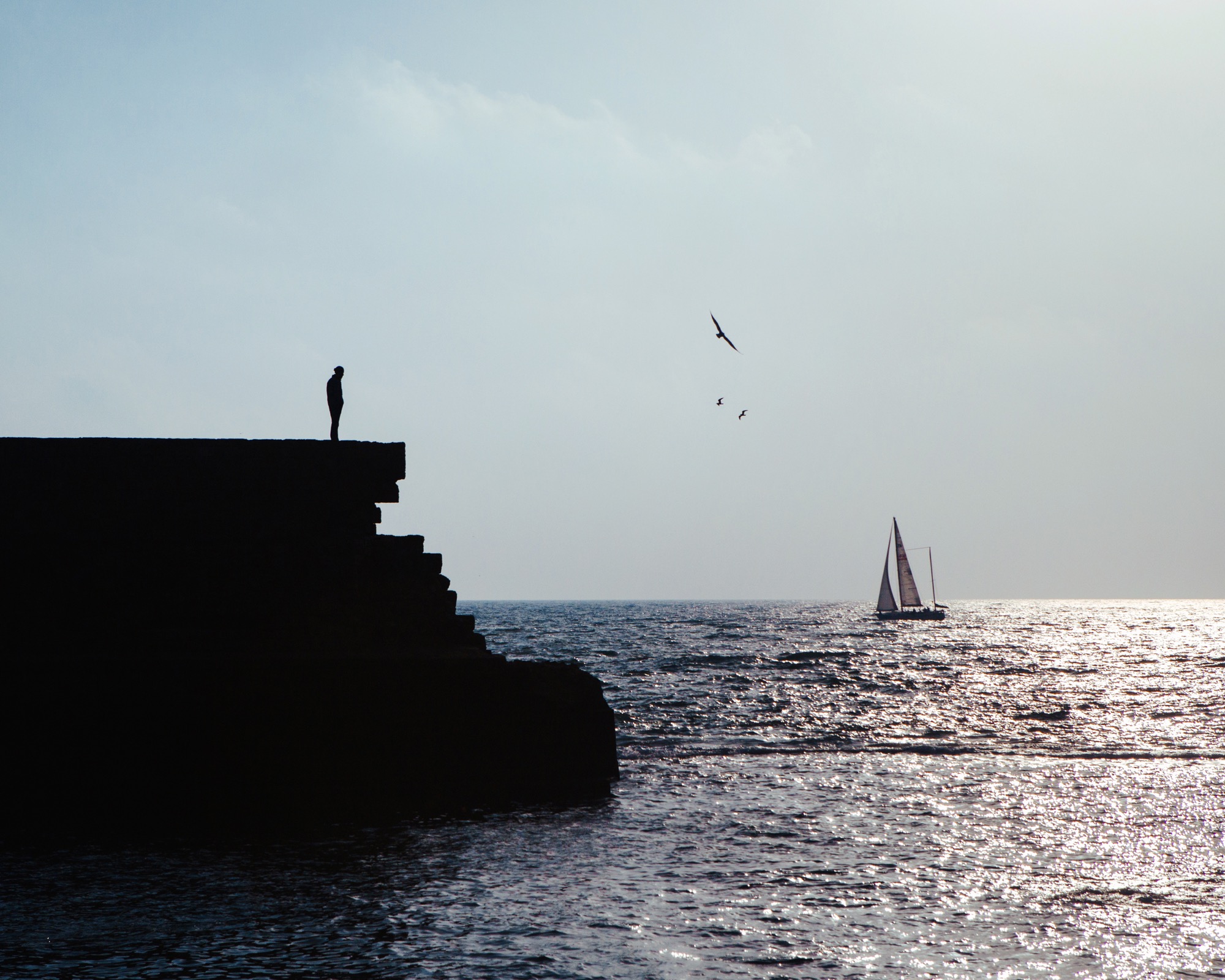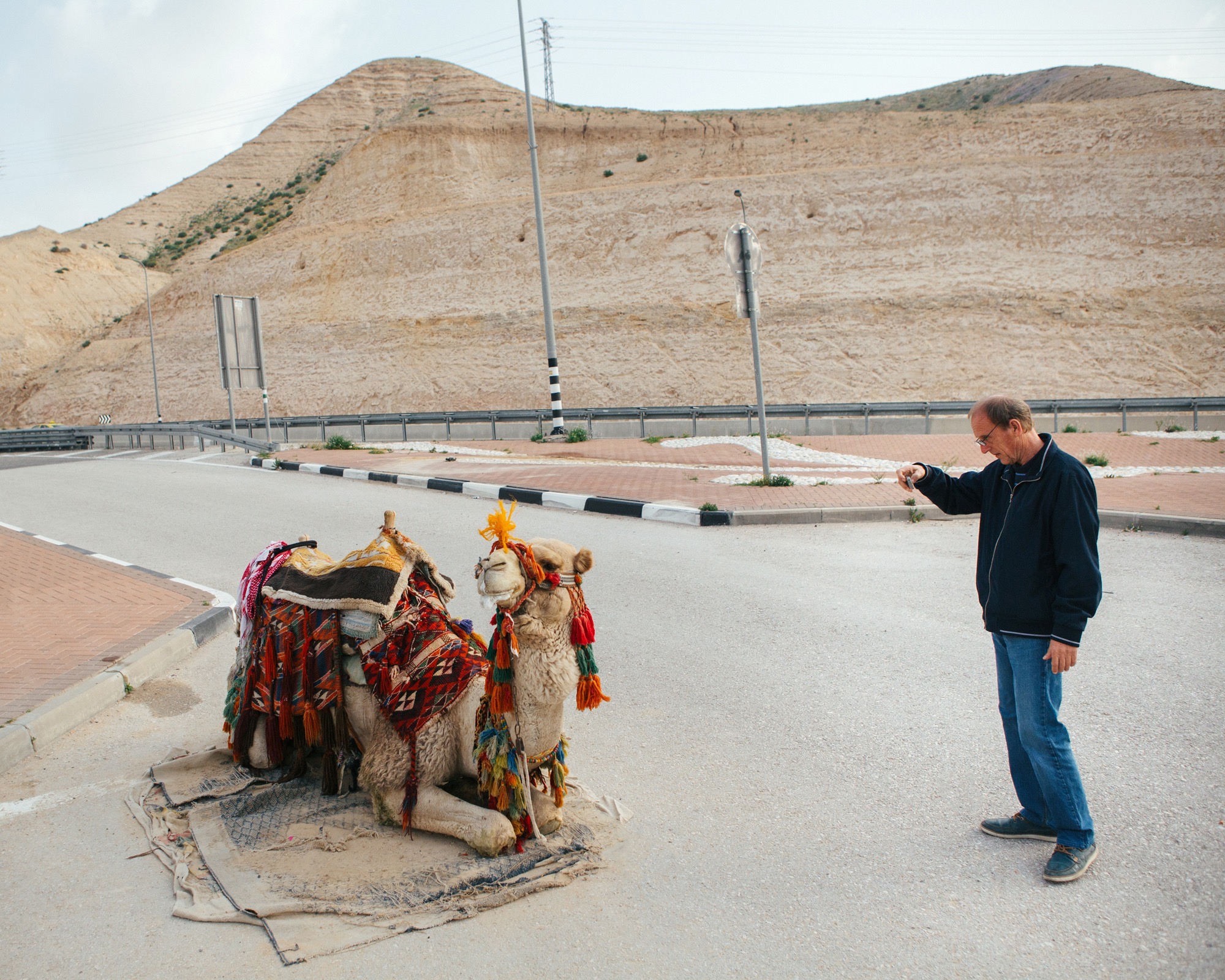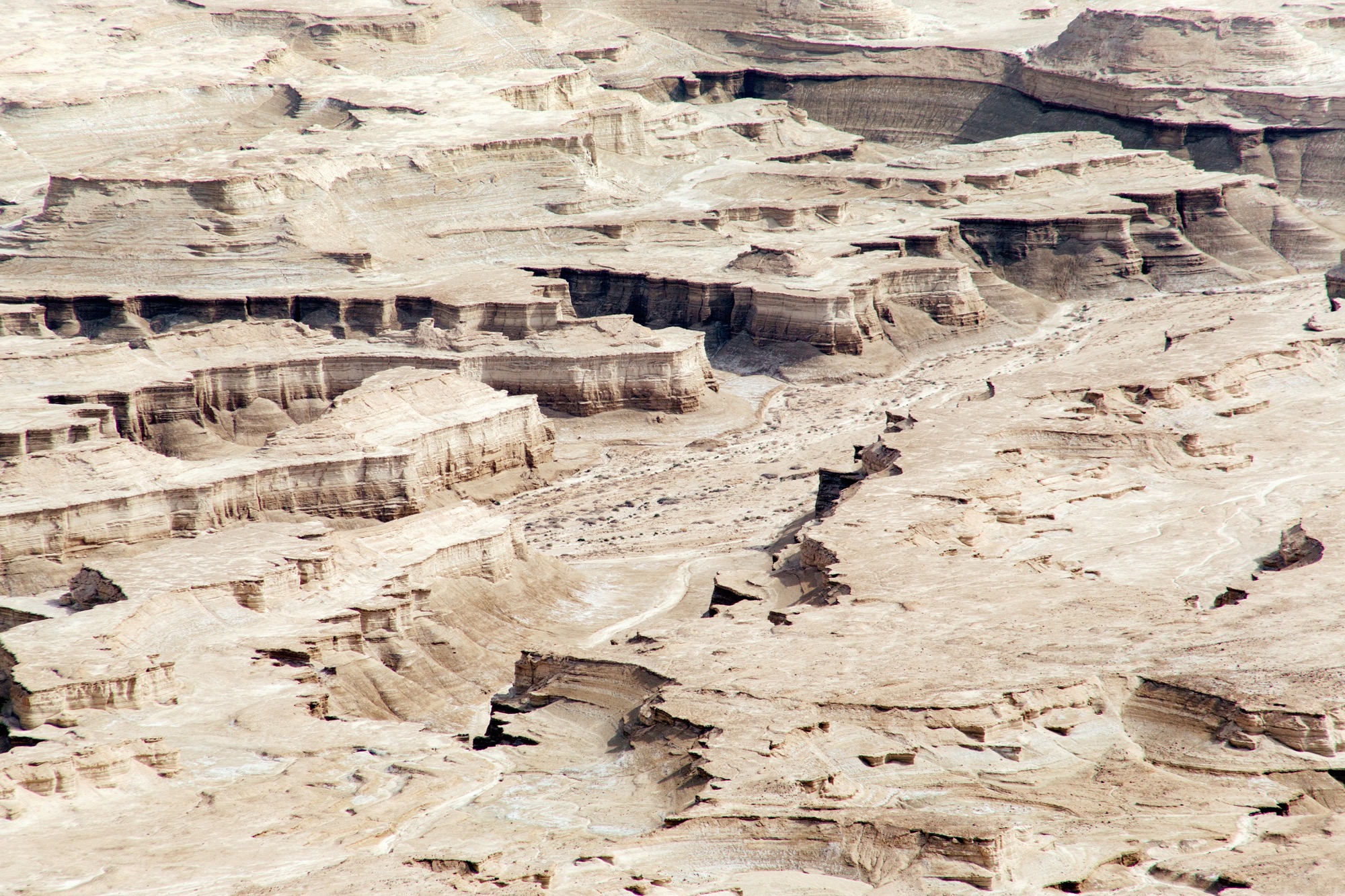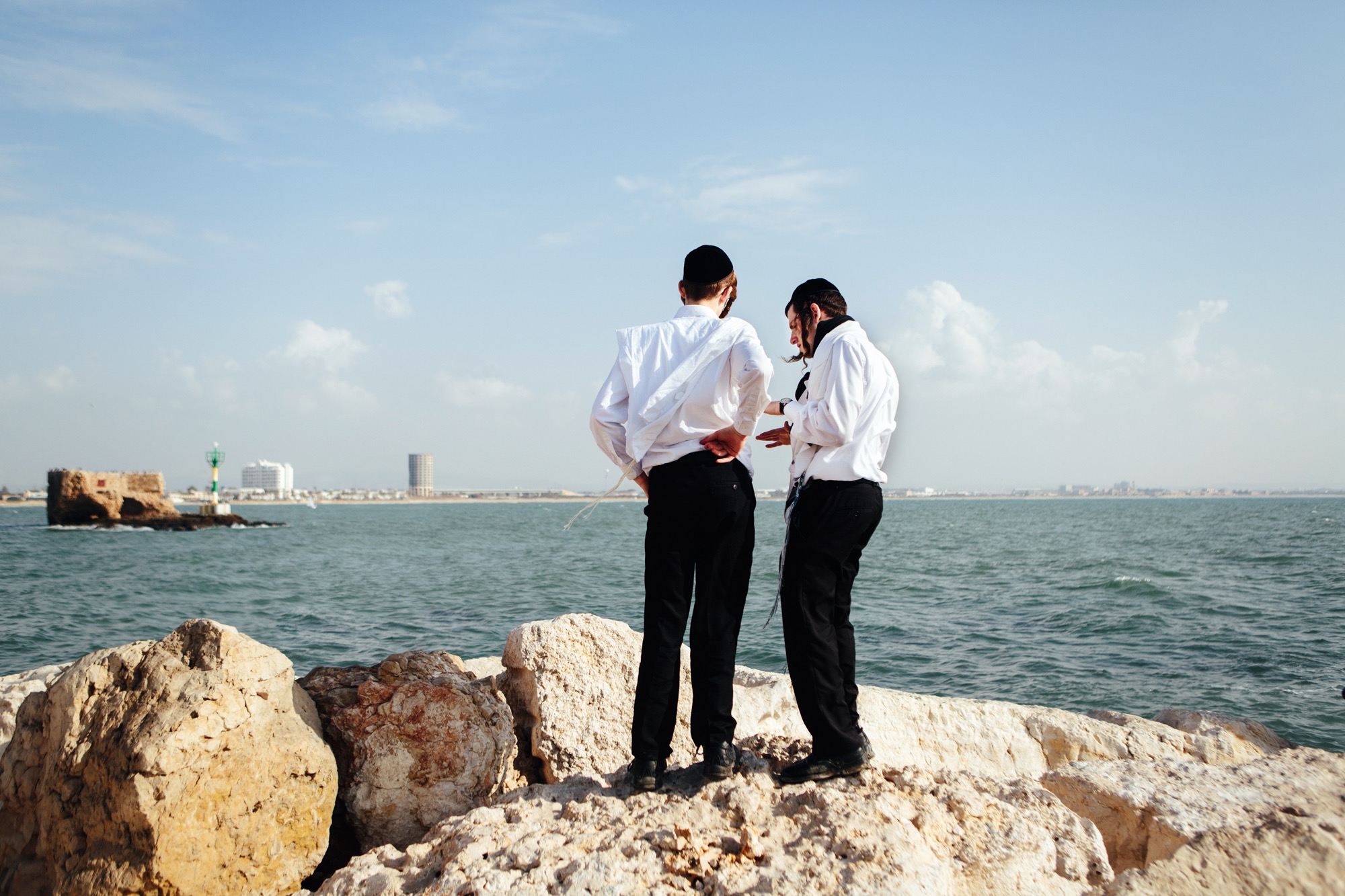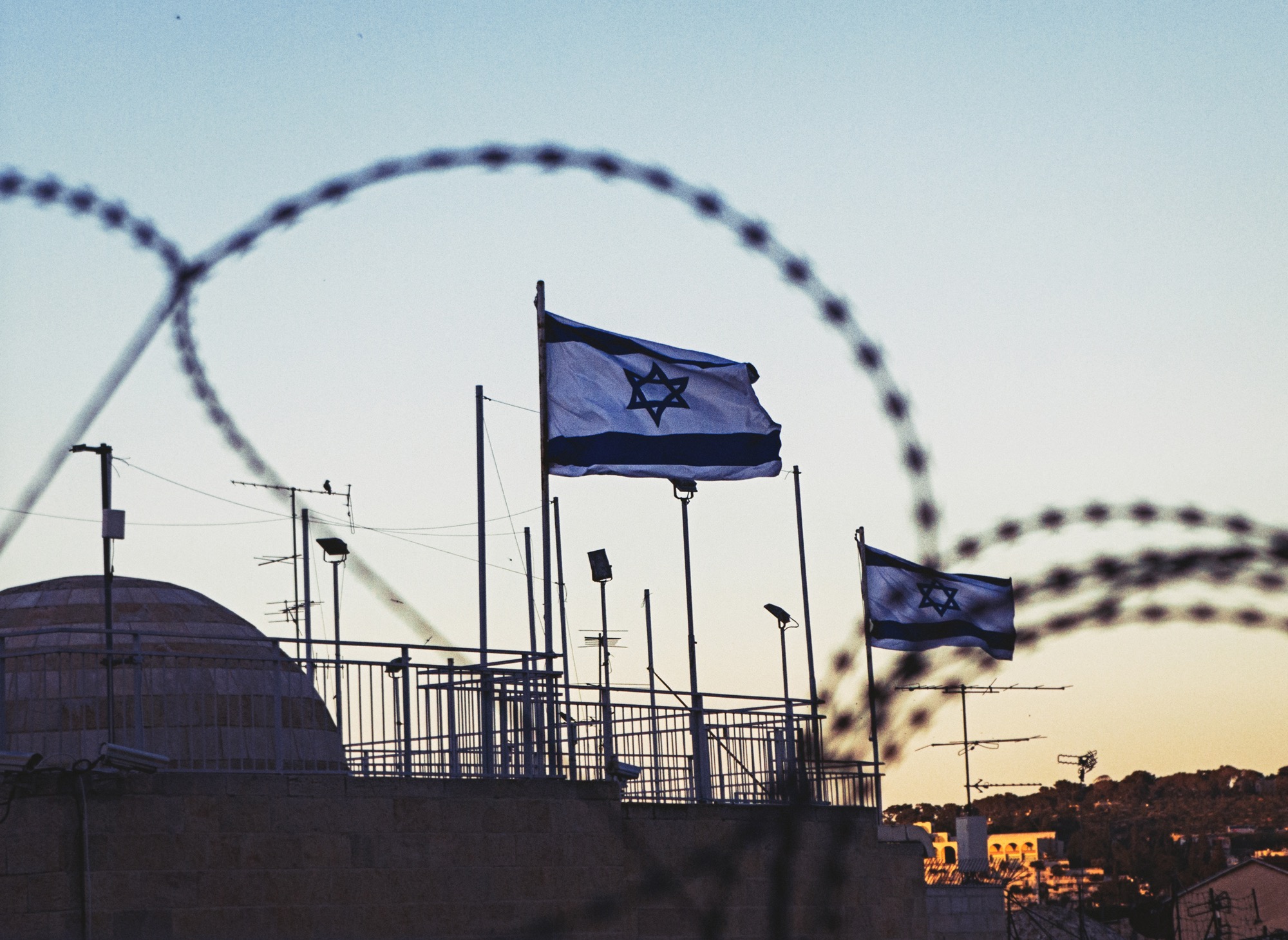Introduce yourself!
My name is Michael George and I am a freelance travel and portrait photographer living and working in Brooklyn, New York. In my work I am always searching to tell people-driven stories that breakdown barriers of understanding. I love that travel somehow allows us to experience places that are incredibly unfamiliar; while at the same time we discover how similar humans are regardless of race and culture.
How does photography influence the way you travel and see the world around you?
Photography makes me more adventurous. Usually if it will make a good photograph it will make a good experience. While traveling, even if I am exhausted from the day I’ll force myself to soak up the last rays of light. It forces me to push past my personal boundaries. I will approach and interview strangers or seek out locations that are off the beaten path.
What sparked your interest to travel to Israel? Which cities did you visit?
In 2013 I walked the Camino de Santiago in Spain and I met a young couple from Israel. Fast-forward to 2015 and they invited me to their wedding. Israel was never on my bucket list but as soon as I knew I’d be going I began to research the region and found it incredibly fascinating. There is rich history and intense conflict, which mixes together to create a beautiful and powerful culture.
What was your favorite approach to photography and documenting while there? Did you generally strike up a conversation with your subjects or just candidly capture the moment? How did people react to being photographed?
Often my photography is a mix of both. If there is an interesting street scene I will try to blend in to capture the moment as it’s happening. If I miss it or if I think the subject will be amenable to a posed portrait I will approach them. In most places, I would say close to 90% of people agree to have their photo taken. In Israel it was tougher because people, especially those dressed in traditional religious garb, assume I am a tourist viewing them as spectacle. It can be hard to convey sincerity as a foreigner.
How did you plan for your trip? How did you navigate between each city?
I try to plan enough that I am comfortable but leave room for adventure and chance. I reached out to friends who have visited the region, talked to the couple that live there, and did a fair amount of online research. Because of the conflict I wanted to read all about the regions I should avoid and various tips for staying safe. Israel is quite small – about the size of New Jersey. I took the train and drove with my friends between the main cities.
Did you have any expectations or preconceived notions about the culture you would be exposed to? How did they differ from the way the culture actually was?
Before I arrived I knew a vague history of the conflict in the region. After touring the Old City of Jerusalem I became deeply saddened by the scars that religion has left on the city. It continues to depress and amaze me how blind people can be to the common message between different faiths. In many of the locals you could feel an exhaustion and cynicism, especially one of my tour guides who accompanied us on a trip to the Dead Sea. Driving on the highways he would point out the massive walls built to protect the cars from Palestinians throwing rocks. When we passed between borders he noted how beautiful the landscape was, despite the conflict humans have imposed.
In a time when there is so much political unrest going on in the region, what were some of your experiences as a traveler?
My experience at the airport in New York was a bit strange, as they asked to take apart every part of my bag and I almost missed my plane. There was also a significant interview. Too late I discovered that people ask the customs agents to avoid stamping their passports so that they can later travel to Palestine. If you have an Israeli stamp in your passport certain countries will likely not accept you as a visitor.
Tel Aviv and Jerusalem are incredibly safe to visit. However, it was strange to be told to avoid certain cities and borders as I traveled outside of those safe havens. Travel advice was often ended with “You know, just in case.” Despite all of this conflict and history, the Israeli people were the most passionate and hospitable I have ever encountered. When I arrived in Jerusalem I knew no one and by that night I was having Shabbat dinner inside a local family’s home. I learned all about “The Shuk,” a marketplace where residents stock up on food for the weekend. The market is so alive! It is a magical experience to shop there. People shouting and throwing samples your way and asking you to try this and smell that, it’s wonderful. There were tremendous local pastries such as rugelach and mutabak. I learned how to make hummus and had some of the best falafel in the world.
How did this trip differ from trips you’ve taken in the past? What surprised you most about your experience?
Travel will often change my perception of a place, but it isn’t as often that I feel it changes who I am. Israel affected my worldview in many ways. It solidified my religious apprehension, made real a conflict that often feels imperceptible, and helped me understand the history of human culture. Israel is the birthplace of so many stories that have shaped our world. I was surprised by how modern and progressive the youth cultures of Tel Aviv and Jerusalem are–There is a vibrant underground art and queer scene that is growing every day.
How can other travelers contribute to Israel while visiting the country?
Always try to leave your preconceived notions at the door and see what happens. Be open, be kind, and be understanding. It is easy to judge as an outsider, but that tension only adds to the conflict. What everyone seems to need in that region is compassion and understanding.
Travel has a tendency to look very glamourous, though that is not always the case. What types of challenges have you had during your travels and how did you overcome them?
We forget that our bodies need to rest. Taking a half-day to sleep and recuperate every 2 – 3 days is a necessity for me. It allows me to process what has happened and get excited for what’s to come. If a travel schedule is planned from 7am – 10pm every day it will go by in a stressful flash and suddenly you’re back home too soon. Slow down! Maybe even leave one day with absolutely nothing planned. I’ve learned this the hard way and often forget to listen to my own advice.
What is your favorite memory from your trip? Is there a particular moment you would relive given the opportunity?
While staying in Abraham Hostel I took a hummus making class with a group of people I didn’t know and we had a blast! Even though hummus is only about 3 ingredients, some of us somehow messed it up and we ended up with a wide range of flavors. We turned the class into a contest and had a local Israeli do a taste test. Some of the faces he made were hilarious, especially when he tried the German’s batch that included about 10x the proper amount of lemon juice.
Of all the images you captured during your trip, which would you say is your favorite? Why?
I think a lot about the places I have visited that the next generation may not ever see. The Dead Sea is one of those places. Our tour guide noted how fast it is receding thanks to climate change and local industries pumping out the water. This image (see image above) of the Sea is calming, but also shows the impact of the recession, which is occurring at a rate of 3 feet per year.
What would you like people to know about your experience within the country that is little known?
It is not unknown but if you visit Tel Aviv you must walk the streets of Neve Tzedek, preferably on a weekday afternoon. Stay in the Abraham Hostel in Jerusalem – it is fantastic.
What’s next for you?
I am traveling to Los Angeles to attend an exhibit of a project I worked on in Patagonia that documents the effects of climate change. After that I will be working with the South Carolina Tourism Board to tell stories from the south. I was born in Georgia so I can’t wait to explore the culture of my roots!
To see more of Michael's photography and stories, be sure to follow him @migeophoto on Instagram.
Images Courtesy of © Michael George Photography
DID THIS STORY INSPIRE YOU?
If you enjoyed this piece and would like more content like this, please consider a donation to Spirited Pursuit - we'd be so grateful!


